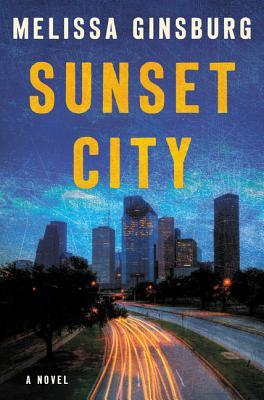Although she has pulled away from the self-destructive behaviour patterns of her early twenties, Charlotte has not yet discovered her true direction in life. She is at that awkward stage: filling in time, working as a barista and waiting for something to happen. When a once-beloved childhood friend gets back in contact suddenly, Charlotte is cautious about renewing the relationship. Danielle was important to her – as close as a sister – but when she lost herself in heroin addiction, Charlotte felt forced to distance herself. When she meets up with Danielle for a drink, she begins to feel more hopeful. Her friend has finally kicked the heroin, and seems in a much better place generally. Could be things have changed for the better, after all.

But less than a week later, Danielle is found brutally murdered in a motel room. Charlotte is shattered. She cannot help asking herself if she might have triggered something – if Danielle’s murder might in some mysterious way be her fault. As the police investigation gets underway, Charlotte wonders who stood to profit by her friend’s death: her estranged mother, Sally, her pornographer boyfriend, Brandon, or someone else entirely, someone from the past Charlotte doesn’t even know about. Her friend’s death has raised demons – not least her own grief. And as with any mystery, there are some questions it might be better not to learn the answers to.
Melissa Ginsburg is a published poet, and her awareness and love of language is a defining feature of this, her first novel, an economical and neatly wrought piece of Texas noir from 2016. As fully befits more modern iterations of the genre, she has some fun reversing and reinventing classic noir conventions: men, for the most part, take secondary roles. Centre stage belongs to the women, and so do the drug and alcohol problems. There is a detective – the suitably rugged and likeable Ash – but he always seems to be one step behind the action, as Charlotte’s deeper, sometimes disturbingly intimate knowledge of the suspects in this case bring her closer both to the truth and to personal danger.
The action I would describe as intense rather than fast-paced, although there are moments of violence and genuine tension, and enough surprises to keep trad noir fans happy. The plot is well thought out, coming together in a way that is satisfying and without any of the eleventh-hour stupidity that so vexes me in generic crime fiction. I warmed to these characters, even when I found myself completely at odds with what they were doing – and that is entirely down to Ginsburg’s skill in characterisation, her obvious sympathy with the situations she is describing. Above all I would praise her sense of place. As in all the greatest noir, this is a novel of the city – of urban grime, debauched glamour and moral ambivalence, and if Sunset City belongs to anyone it is to Houston, Texas. Ginsburg finds poetry in the most mundane of subject matter, in small details and moments and sensory impressions lesser writers might skip over or simply not notice.
A short book, but an impressive one, and in spite of the horror at its heart, moving and humane.